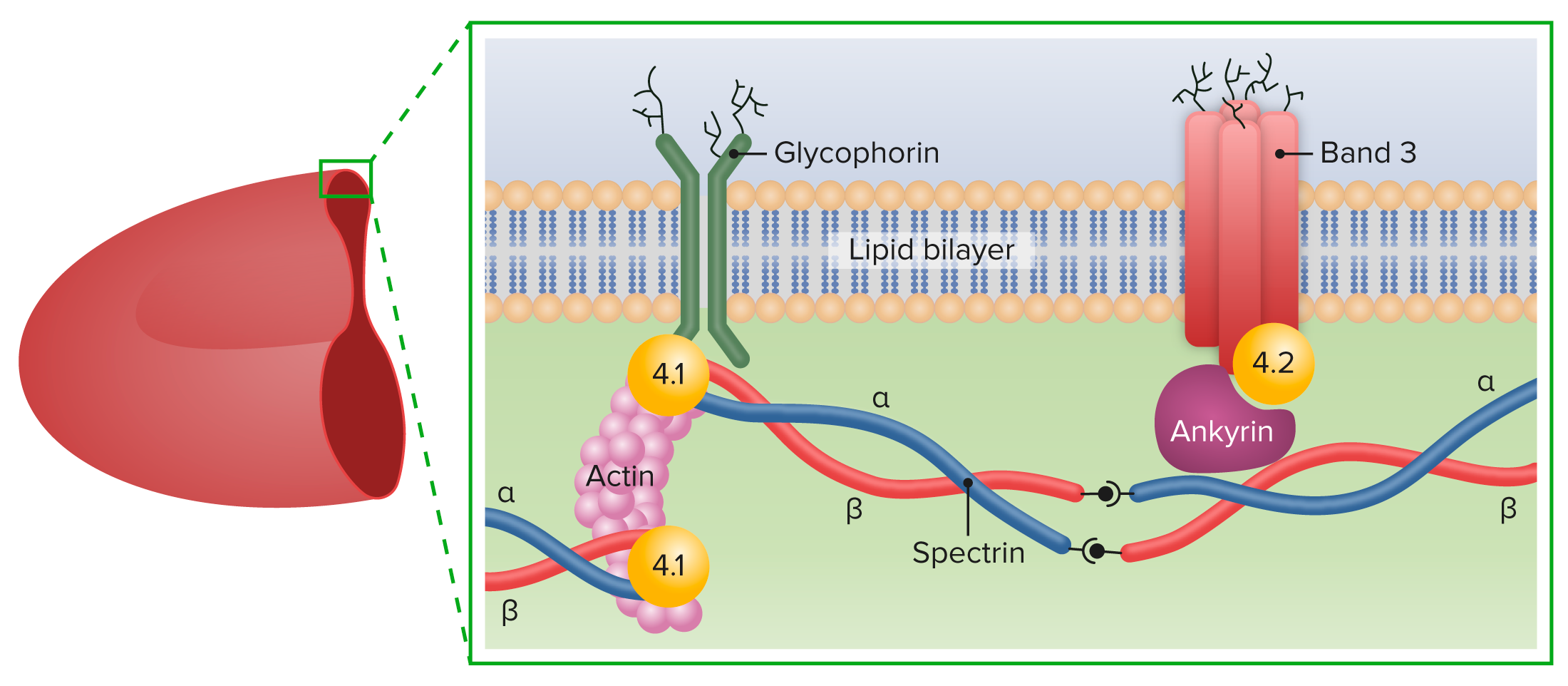Playlist
Show Playlist
Hide Playlist
Hereditary Spherocytosis (HS): Clinical Pathology
-
Slides Hereditary Spherocytosis.pdf
-
Download Lecture Overview
00:00 The cause of chronic hemolytic anemia over a period of time may result in splenomegaly. 00:07 Now, a very important point, you can have a patient that has hereditary spherocytosis, and unfortunately, concomitantly may also have an infection with parvovirus B19. 00:18 As soon as you see parvovirus B19, you reflexibly go to bone marrow shutdown, and you go to the other branch of your normocytic anemia. 00:27 And what would that be? Non-hemolytic anemia, is that clear? Next, diagnosis, as we said earlier would be the osmotic fragility test, what are you going to do? Tell me about the hemoglobin concentration in that RBC? It’s elevated. 00:42 You put this into a hypotonic solution, what happens? The cell is going to swell. 00:48 Next, I asked you or I told you that that particular peripheral blood smear where you’d find a spherocyte shares a differential with which other condition? A warm autoimmune hemolytic anemia. 00:59 But here, under hereditary spherocytosis, it’s not an autoimmune disease, and so therefore, it will be Coombs negative so that’s your immunoglobulin type of test. 01:12 And there are no antibodies here, clear? Hence, the Coombs will be negative. 01:16 Keep that in mind. 01:17 That’s an important slide to go through in terms of proper understanding clinically of your hereditary spherocytosis.
About the Lecture
The lecture Hereditary Spherocytosis (HS): Clinical Pathology by Carlo Raj, MD is from the course Hemolytic Anemia – Red Blood Cell Pathology (RBC).
Included Quiz Questions
Infection with parvovirus B19 in a patient with spherocytosis can result in which of the following?
- Aplastic crisis
- Increased hemolysis
- Production of antibodies against RBCs
- Increased RBC life span
- Decreased hemolysis
Which of the following conditions causes a negative Coombs test result?
- Hereditary spherocytosis
- Systemic lupus erythematosus
- Syphilis
- Infectious mononucleosis
- Autoimmune hemolytic anemia
Customer reviews
5,0 of 5 stars
| 5 Stars |
|
5 |
| 4 Stars |
|
0 |
| 3 Stars |
|
0 |
| 2 Stars |
|
0 |
| 1 Star |
|
0 |




